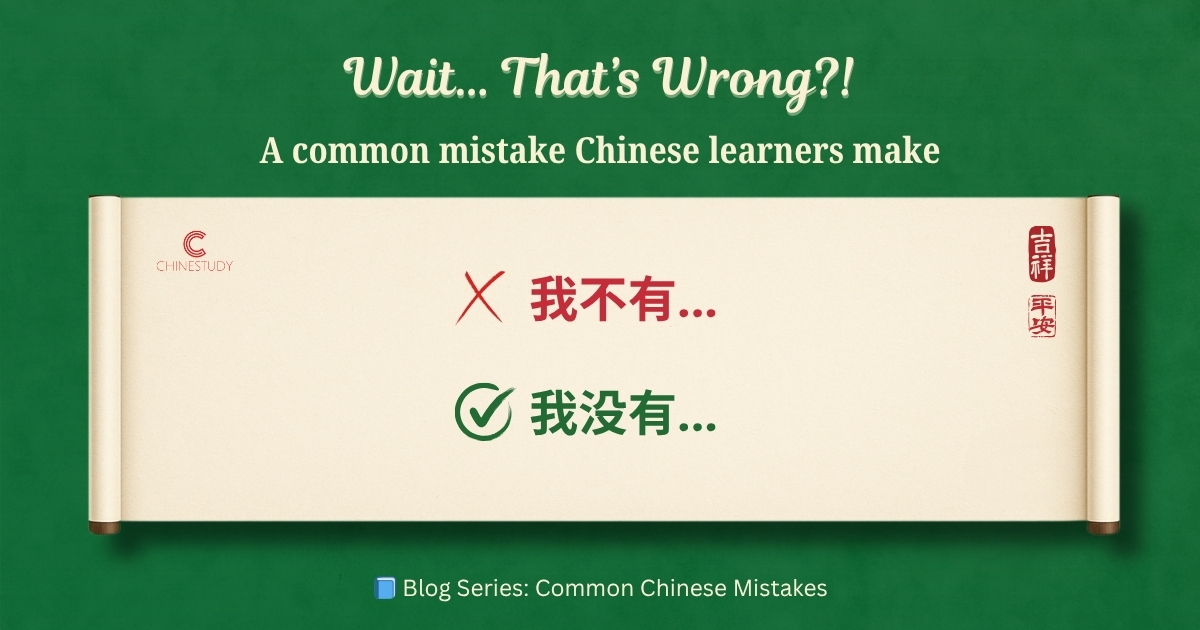😅 我不有 – Wait… That’s Wrong?!

❌ The Wrong Sentence
我不有...
(wǒ bù yǒu...)
= I not have...
You might think this is right if you translate word-for-word from English (“I don’t have...”), but in Chinese… it’s a no-go.
✅ The Correct Sentence
我没有...
(wǒ méi yǒu...)
= I don’t have...
🔍 What’s the Problem?
In Chinese:
-
没有 (méiyǒu) is the correct way to say “don’t have” — both for physical objects and for situations.
-
不有 (bù yǒu) is not used in modern Mandarin. You’ll never hear native speakers say it.
💡 Why?
-
有 (yǒu) means “to have” or “there is/are.”
-
When negating 有, Chinese always uses 没 (méi), never 不 (bù).
Think of it as a fixed grammar rule in Chinese: always 没(有), never 不有.
📚 More Examples
1.
我没有钱。
(Wǒ méi yǒu qián.)
= I don’t have money.
2.
我没有时间。
(Wǒ méi yǒu shíjiān.)
= I don’t have time.
3.
这里没有人。
(Zhè lǐ méi yǒu rén.)
= There’s no one here.
💡 Easy Tip to Remember
If you want to say “don’t have” in Chinese:
-
Use 没有 for possession or existence.
-
Forget 不有 — it doesn’t exist in Mandarin.
Think:
📌 没有 = “have not / there isn’t”
📌 不有 ❌ = never used
🎯 Interactive Practice
Which one is correct?
A. 我不有书。
(Wǒ bù yǒu shū.)
B. 我没有书。
(Wǒ méi yǒu shū.)
✅ Correct Answer: B
🚀 Final Reminder
In Mandarin, 有 is only negated with 没.
So next time, don’t say “我不有...” — say “我没有...” like a native.
📘 Want to avoid more Chinese mistakes?
👉 Check out the full blog series: Oops! Chinese Mistakes.
Thank you for subscribing!
Have a great day!